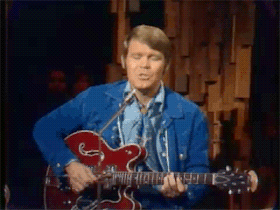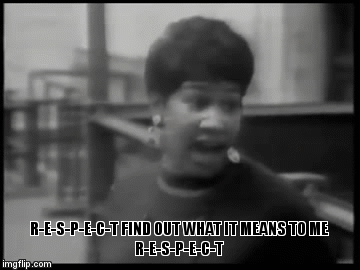Glen Campbell's "Times Like These"
Country legend Glen Campbell is the kind of singer who's career is largely built on covers, which was pretty typical in the 60's. It was especially common in folk and most of Campbell's songs came from folk or country. In 2008 Campbell released a new album of covers by artists like Green Day and U2, who at the time were almost contemporary, at least for a 72-year-old. A stand-out was the 2002 Foo Fighter's hit "Times Like These." It was originally very much a product of its era with its post-grunge crunchy guitar riffs. Albeit, the Foo Fighters did early 00's crunchy guitars better than anyone. The Foo Fighters remain titans of rock because frontman Dave Grohl is consistently an astounding songwriter. "Times Like These" is an eloquent, if slightly dated, song about toiling towards the light at the end of the tunnel. When Campbell performed it he made it timeless. He infused it with his glorious arena country/pop sound, invoking images of the sweeping Western plains, permeated with optimism and divine opportunity.
Aretha Franklin's "Respect"
Nirvana's "The Man Who Sold The World"
David Bowie is known as one of pop culture's greatest chameleons. In the 70's his scales were the color of a glam rock god. He ruled the stage like Zeus on Mount Olympus but with even more sexual deviance and presumably much more consent. He was finely manicured, covered in glitter and mystique and his music reflected that. Bowie's 1970 album The Man Who Sold The World and its title track, like much of his work from the time, is grandiose and intergalactic. The song is cosmic and mysterious and finely polished. 21 years after The Man Who Sold The World ushered in glam rock Nirvana's Nevermind did the same for grunge, glam's polar opposite. However, Kurt Cobain, Krist Noveselic, and a pre-Foo Fighters Dave Grohl were mere mortals who just happened to be the most famous people in the world. Maybe the only thing grunge and glam have in common is that Cobain was every bit the genre defining icon Bowie was, if not more. In their iconic acoustic performance for MTV Unplugged Nirvana played "The Man Who Sold The World" and it was a highlight of an overall magnificent recording. The cover was earthy and accessible, one of many entrances into the mind of Cobain. Right now there are hundreds of thousands of teenagers who feel more connected to Kurt Cobain in 1993 than anyone they know personally, as many as those who dream of a celestial encounter with a spaceman like David Bowie.






No comments:
Post a Comment